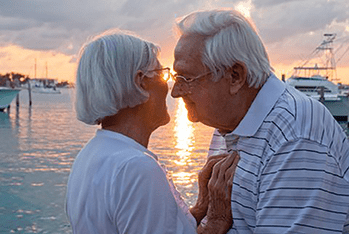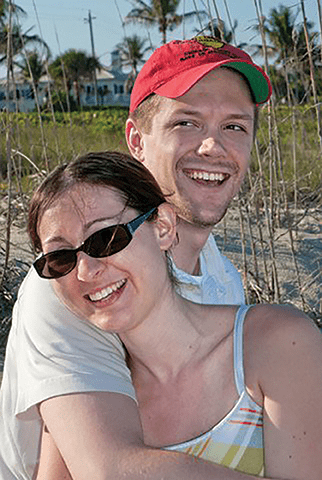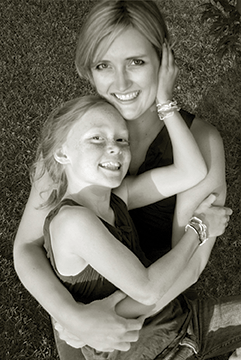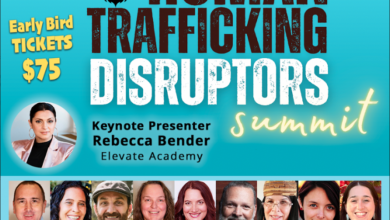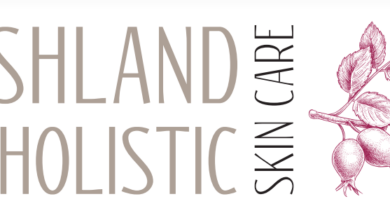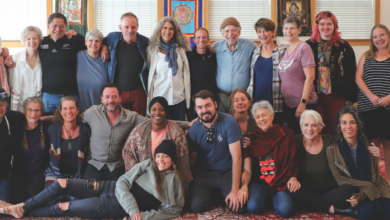Jennifer Downs – Creating Loving Relationships – Change IS Possible
For over 25 years, Licensed Professional Counselor Jennifer Downs has worked to support couples and individuals in achieving positive, lasting change. She helps clients become aware of self-protective barriers, create more intimacy, find purpose, develop connections, heal from relationship loss, and maintain long-term loving relationships. As clients gain deeper awareness about themselves, they are empowered to actively choose the types of experiences they wish to have. Jennifer strongly believes change is possible, and she works skillfully and attentively to address the root cause of her clients’ issues. A WinterSpring Advisory Board member, Jennifer often works with individuals experiencing grief and loss in her private practice.
Hi Jennifer. Thank you for taking the time to speak with us today. In our last interview, you were focused on the topic of grief and loss in connection with relationship. Please catch us up on your work today.
Since we last spoke, I have become more conscious of what really matters to people. We desire closeness, warmth, intimacy, and a sense of belonging. It seems these experiences are often the most difficult to achieve. They require becoming aware of and letting go of self-protective patterns and behaviors.
I had an epiphany in which I felt what it would have been like to live my life from a place of feeling safe, secure, and protected from the inside. The juxtaposition of that feeling with my actual experience was astounding. I realized how different my life would have been if I’d carried that knowledge inside all along. I recognized all the behaviors I had practiced to try and get that feeling from others since it was missing inside me. During this moment of self-reflection, it felt like an incredible loss to have gone through life without that inner strength. Along with that realization came a rush of compassion for myself and so many of us who lack that feeling on the inside and struggle to find it throughout our lives. I guess you could call it the human condition, and you could call what I experienced in that moment the grace of compassion. I now have a deeper self-understanding and sense of self-acceptance.
I also have a renewed commitment to helping people discover the patterns and beliefs keeping them from being intimate, experiencing a sense of belonging, relaxing inside, and being more comfortable in the world. When people connect with what is really going on inside from a nonjudgmental place, there is a greater capacity to experience warmth and deeper connection with others. It’s what everyone wants, but it requires giving up self-protective behaviors that previously served us but can now keep us from intimacy. Together, we embark on that discovery and letting-go process, working gently while honoring the self.
Often it is relationships that make people realize they need to take a deeper look at themselves. I have heard “I was doing fine until I got in this relationship.” I get calls from people who have ended a relationship and are experiencing multiple losses as a result. They may feel not only the grief and loss of their former partner but also of a way of life, an identity of being married or partnered, and possibly a home, being part of a family, or seeing their children on a regular basis. The big question to resolve is, “Who am I now?” We work together to build the inner resources necessary to grieve the losses and move on with more awareness about their role in the relationship’s end as well as what it takes to have a loving relationship both with themselves and others.
You have mentioned the topic of secure vs. insecure attachment first occurring in early life. How does this shape and create opportunity throughout an individual’s life?
When we are young, if we have parents who hold us, give us love, attend to our needs and feelings, and let us know we are important and wanted, we feel secure and protected. The world feels like a safe and trustworthy place. We carry that inside and operate as if this were true. We relate to people as people rather than as objects to help us feel more secure. We are lucky.
This feeling of safety begins in the womb. A while back, there was a picture on the cover of TIME magazine with an accompanying story about the effects of the mother’s emotional state and biochemistry on the fetus. The baby can sense being loved, wanted, and sung to as well as when their parents speak in soft, loving voices. The fetus can even feel if the mother is distressed while pregnant, the pregnancy is unwanted, there are relationship stresses between the couple, or the father is absent while the mother is struggling to carry and raise this baby on her own. If such issues are present when the baby is born and the baby isn’t treated as precious, the child fails to develop a solid sense of self. If the parents are drug or alcohol abusers or even if, like many parents, they are overextended and stressed, they can send destructive messages to their children by not making them a priority.
You enjoy working with and assisting young parents. Please say more about that.
Because I know how important the messages we give our children are—both verbal and through our modeling—I love helping parents become more aware of how to help their children develop a secure base from which to experience life. Almost all parents want to raise their children to feel loved and secure in the world. Most of them want their kids’ experience of growing up to be different from their own. There is a lot of consciousness now about being there for children and putting them first. This is a wonderful and necessary focus. It is also difficult for working parents. Honestly, every family experiences stresses while trying to balance their lives. Often they can’t give their children the presence and attention they would like to provide. Blended families present their own problems. I help parents find balance in their lives and ways to take care of themselves. If parents do their own emotional work on unhealed parts of themselves, they have more awareness of how these issues impact their children. Before I became pregnant, I naively thought I should wait until I was completely “healed” so I wouldn’t pass on any insecurities to my child. If I’d heeded that idea, I would have waited forever. Having my son was the best thing I ever did, and he is just fine—in spite of me.
How does this early dynamic shape and create the ways individuals approach life, and what impact does it have on relationships?
When we have that safe feeling inside, we possess more confidence in our choices, feel less anxiety because of that basic trust, and can be more present with others. We may also be less judgmental of ourselves and others. We can cope with life on its own terms rather than having to control it to help us feel secure.
If we don’t have that feeling inside, we develop strategies for dealing with our unmet needs. Children find ways to adapt to a home environment that doesn’t feel safe or loving. We also develop beliefs about ourselves such as, “I’m not important,” “I’m not worthy of love,” “There’s something wrong with me,” and “I’m damaged goods.” So many people carry subconscious core beliefs that play out in our relationships. We may set up life situations to confirm these hidden beliefs and then wonder why we keep picking the same kind of person.
We think we need someone to be happy or fill these needs, and they become objects to satisfy this. We develop behaviors to gain approval and win over others, including being smart, sexy, attractive, wealthy, or pleasing. There is nothing inherently wrong with these attributes unless we are overly attached or identify them with our sense of self-worth. If we use them as a survival strategy, it becomes exhausting, stressful, and anxiety-producing. At some point, we realize we can’t or don’t want to live that way anymore.
How does this all translate into the relationship realm? How do people create and become objects to fill their need for a secure attachment, and what ways will this play out?
I can tell you a story about a client of mine. I call this “looking for love in all the wrong places.” She was in a long-term relationship but always felt slightly insecure in it, afraid her partner would leave and that he didn’t love her that much. He never wanted to get married, and she felt that indicated he wasn’t committed. She was dissatisfied with the relationship and critical of him. At one point in therapy, she tapped into an experience of never having felt safe and secure and how deeply she felt that way even as a child. Rather than judging herself, she was able to feel deep warmth and caring for that child. She realized all her relationships had been about trying to feel secure. Not only did that not happen to her satisfaction (how could it, really?), but she would pick men who played right into her feelings of insecurity. Her resentment grew when the current boyfriend didn’t love her in the way she thought she needed, and she would then leave to find a man she thought would. It’s such a classic story. She was able to see her pattern clearly and make a different choice. She told her partner she realized she was the one with one foot out of the relationship, not him and was committed to doing it differently. He was relieved and said he’d sensed something like this all along but had been made out to be the bad guy. After this exchange, he felt safer in the relationship and began being more loving toward her. In an unprecedented act, he bought her flowers. True story. Change is possible when you’re willing to look inside instead of holding onto blame and resentment.
Please talk about anger, blame, and resentment in regard to relationship. Why does it occur, and how can individuals experience change?
There are a number of reasons why this occurs. In the previous example, you can see how my client became resentful and began blaming because her partner didn’t meet her needs in the way she wanted. When she looked deeper into herself, she saw clearly what was really going on and stopped making him the object of her dissatisfaction.
We all come into a relationship with a set of what may be unspoken hopes, dreams, and expectations. Many people enter into marriage before really knowing what the other is like when they are sick or stressed, and whether they can live with how the other deals with these things. We don’t know the whole person. When we see this other side, it can be hugely disappointing. We might become angry and blaming. These feelings can develop into contempt and a lack of respect, which John Gottman says is toxic in a relationship. Creating a sense of safety to address this situation is essential.
Besides more deeply understanding themselves, what can partners do together to create safety and build more intimacy and love in a relationship?
Creating a loving relationship must be learned unless you are one of the lucky ones who grew up with a model of effective communication and regular expressions of love and caring. People want intimacy, closeness, and warmth but are still holding onto their negative core beliefs about themselves, critical self-talk, and self-protective behaviors. To cultivate loving relationships with others, you must first dive deeper into a more compassionate, accepting relationship with yourself. You have to choose intimacy over self-protection in a loving and careful way. Choosing love versus being right or safe requires vulnerability. See if your relationship feels safe enough to be vulnerable; if not, take steps to create more safety first. We do a lot of work in therapy around creating more emotional safety in the relationship so this can happen.
Partners often feel unloved and unimportant to each other. I hear people say, “I feel like I’m at the bottom of the list,” or “I don’t feel heard or understood.” What is required is a desire to understand the other’s thoughts and feelings.
A lovely question to ask your partner is, “What is one thing I could do differently that would help you feel more loved by me?” Listen, then share what that would be for you. Listening with the intent to understand builds trust and intimacy.
We talk about “fair fighting” guidelines, which help create safety and enable discussion of difficult issues. My favorite question and one I encourage couples to begin with is, “Do you want to be right, or do you want to be or happy?”
People often do what is called “mind reading,” interpreting the other’s behaviors in a way that says something personal about them, usually in a way that makes them feel unloved. This interpretation is often untrue. In couples therapy, I sometimes have each person take a turn at being the partner, imagining how the other feels to understand them more deeply. Amazing insights have come from this exercise. When one woman tapped into her husband’s experience instead of focusing on her own hurt and anger over how her husband was “not available,” she saw how her critical behaviors hurt him and how he reacted by backing away. She became deeply motivated to look at what her criticism was about and share her hurt feelings rather than attacking her husband. He felt relieved, appreciative that she understood his feelings. He welcomed her new approach and planned to do the same himself.
A couple I recently worked with says, “Jennifer provided us with very helpful insights, communication tools, a calm and welcoming atmosphere, body healing strategies, and internal orientations from which to operate. She was both challenging and empathetic, and we’re most grateful to her for saving us from our worse selves and putting us on a new path to a hopeful and happy future” (L&B, Ashland).
Stress and anxiety are also deeply addressed by your work.
When we are under stress, overwhelmed, and anxious, we are not our best selves. Stress affects us physiologically as well as impacting our relationships. We often become short, critical, and easily frustrated with our partner, coworkers, children, parents, and ourselves. We need to do something about this! The causes are often complex and challenging to address. If it were easy to change these ways of being, most of us would.
To effect change, you need to be willing to make a commitment to yourself. Recognize that you are important enough to take time out of your busy day to manage the external and internal stresses in your life, calm your nervous system, and be curious about what is driving this way of being. There are many resources available online (e.g., the cell phone app Breathe2relax) and our community (e.g., yoga classes and many other centering disciplines). Make time to walk, listen, and focus your attention on what’s around you. Stop checking email for two minutes and take some deep breaths while noticing what you are thinking and feeling. Although it is not the cure, becoming more present is a step toward managing stress and anxiety. Doing the deeper work of exploring what’s driving these feelings in conjunction with practicing balance in your life creates more awareness and the possibility of change.
Letting go of self-criticism and finding relationship with oneself is of vital importance. Please say more.
Feeling insecure is common. So are self-criticism and judging oneself. They’re rampant! I encourage couples to be kind to each other, but it is so much easier to do when we are kind to ourselves. Moving from critical self-talk to self-acceptance takes understanding, motivation, and practice. Self-acceptance and being kind to ourselves lessen anxiety and create greater peace of mind. These practices change everything. Exploring and experiencing our core beliefs and the root of the self-talk with kindness and compassion is profoundly healing. Noticing the pain caused by the stories you tell yourself and the thoughts you entertain is a good first step. Tune into how your body and mind feel when you reframe your inner dialogue into more encouraging and supportive messages. What is the most supportive message that would be in alignment with your wish to be healthy? Imagine a loved one who has your well-being at heart telling you how he or she sees you.
What are some of the gifts of coming to resolution with oneself?
For starters, it helps us cope with depression, worry, and anxiety. We are more relaxed internally. It calms our nervous system and helps us respond without reactivity. When we stop the negative story we are telling about ourselves and our life and start being kind to ourselves and others, we create space for gratitude and a sense of calm. When we begin to notice without judgment what’s going on internally, there is a kind of acceptance and curiosity that happens. When I accept those aspects of myself I typically judge, I feel much more connected to and fully present with others.
How do you help people recognize and work through these issues?
I enjoy looking at the deeper piece of why we feel critical or blaming in the first place as well as why we so quickly go to a place of interpreting behaviors as meaning we’re not loved in relationships and in life. Sometimes we do this through guided imagery, going back to an experience of when we felt this as a child. In this scenario, we can identify the messages we received and the beliefs we formed as a result and can then connect with a part of ourselves we may have lost touch with so we can let those feelings go. This involves bringing conscious awareness to these messages and realizing the impact they have had on our lives while tapping into the resourceful, trustworthy, and loving aspect of ourselves. The therapy may be cognitive behavioral in nature, replacing self-defeating thoughts and behaviors with those that are empowering. How we do this depends on the individual and involves honoring spiritual or philosophical beliefs, learning styles, and personal goals.
One client writes of such an experience, “I can’t begin to express the changes I feel. Your intuition, wisdom, and compassion are helping me find a part of me I didn’t know was there. My core. Thank you for this amazing gift” (J., Eagle Point).
Your work is both for individuals and couples, but you recently offered a new group. Please tell us more.
Yes! This summer I facilitated a group called Mindful Transitions, which is a psychoeducational support group for people in transition who want to move forward in ways that support more presence and the ability to create loving relationships. In the group, we looked at how our self-protective patterns developed and how they keep us from being intimate and living with integrity. Mindfulness helped us explore these with acceptance and kindness so we could step out of these patterns and make different choices about how we relate to others and ourselves. We discovered where intimacy starts and how to truly connect. At one point during the group, we wrote self-compassion letters. It was not easy for everyone to practice self-compassion, so we addressed that as well. It was a beautiful and insightful time together. I am offering the group again this October.
One participant says of the group, “It contributed to my constant awareness of how I am led astray from the present moment by my incessant thought patterns and habits and how hard it is to accept myself as I am. I felt a strong sense of mutual respect and caring from others in the group. Everyone seemed to have a strong desire to understand their lives at a deeper level and shared a reverence for life. Thank you, Jennifer, for creating this wonderful experience” (Roger).
I love bringing people together for a common purpose and self-exploration. The following story from Tara Brach beautifully illustrates the possibility of another paradigm for being together.
In a village in Africa, if someone violates the rules, they call a gathering of all the members. They form a circle with the person in the middle. For several days, everyone tells that person what is good about him or her. They tell stories of the good, kind, generous things the person has done during their life. When it is over, the circle is broken, and they celebrate as the person is welcomed again into the tribe.
Tara Brach writes, “Helping people remember their goodness is the greatest gift we can give to ourselves and each other.”
Jennifer, thanks for speaking with us today. Do you have any last thoughts you might like to share?
I love my work. It is very fulfilling. I also know it isn’t my whole life. I establish a sense of well-being by balancing it with hiking, taking walks, horseback riding, cooking healthy meals with my partner, Bruce, and spending time with my 95-year-old dad and friends. Keeping these in balance is what makes life meaningful for me and allows me to be more present, centered, and less reactive when life brings inevitable changes. I have also decided to be my own best friend.
Please visit my website at jenniferdowns.net. I welcome hearing from you.
Learn More:
Jennifer Downs
JenniferDowns.net
Jadowns3@gmail.com
541-488-4872

